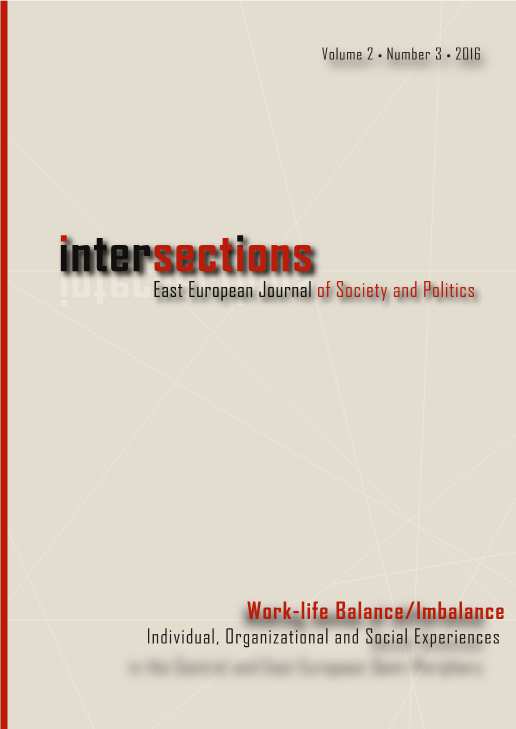Main Breadwinner Women in Hungary and Their Work-family Balance Related Coping Strategies
Main Breadwinner Women in Hungary and Their Work-family Balance Related Coping Strategies
Author(s): Mária Neményi, Judit TakácsSubject(s): Socio-Economic Research
Published by: MTA Társadalomtudományi Kutatóközpont Kisebbsegkutató Intézet
Keywords: primary breadwinner women; Hungary; qualitative research; work-life balance
Summary/Abstract: In this study, being the first Hungarian qualitative study devoted to this subject, we focus on the work-life balance situation of Hungarian women acting as main breadwinners within their family. The empirical base of our study consisted of 22 in-depth interviews conducted with Hungarian mothers of dependent children younger than 14, living in (heterosexual) couple households, who bring in at least 60% of the total household earnings. We examined how the main breadwinner role might affect the gender norm expectations acquired during socialisation, the division of domestic labour and child care duties between the partners, as well as the internal power relations of the couple. According to our findings, various versions of work-life balance management could be identified even within our small-scale qualitative sample on the basis of two main dimensions. On the one hand, on the basis of our interviewees’ accounts we examined whether the partners had similar role expectations in terms of egalitarian sharing of family related tasks or traditionally gendered role specialisation. On the other hand, we have also considered to what extent other contextual factors contributed to women becoming primary breadwinners, and whether these were perceived in terms of external constraints or preferred choices (or both). On the basis of our analyses we have identified four models of family relations in the context of primary female breadwinning: the traditional, the egalitarian, the externally forced role reversal and the consciously implemented role reversal models.
Journal: Intersections. East European Journal of Society and Politics
- Issue Year: 2/2016
- Issue No: 3
- Page Range: 97-117
- Page Count: 21
- Language: English

